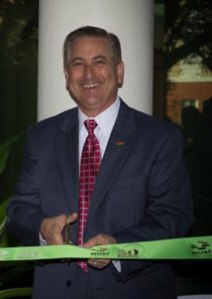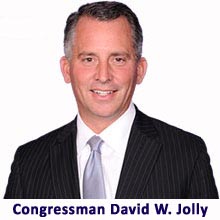At a meeting of the Pinellas County Legislative Delegation on Tuesday, St. Pete mayor Rick Kriseman claimed that he and “his top aides” didn’t know about a crucial 2014 sewage consultant’s report until last week. Yet somehow the Florida Department of Environmental Protection (DEP) knew about the report, and disclosed at the delegation meeting that they had received the report from the city a year ago.

It was not at a sewage plant.
Kriseman said he intends to seek “state and federal assistance” to bring the sewer system up to standard. Seasoned lawmakers the Guardian spoke to said that means handouts, not loans.
Kriseman seems to be exercising the “Duclear Option”, so named after Duke Energy’s reach into taxpayer pockets to cover the costs of its own incompetence. Sewage and stormwater infrastructure are normally pipe for through a line item charge on the monthly bills of the utility’s customers. The relevant charge is actually the stormwater charge, currently $6.85 per month. More on why stormwater is the relevant charge later in this article.
Kriseman also indicated that he is lawyering up by ordering an investigation into the whole affair. However, before the investigation even got underway, Kriseman appeared to have found the culprits when he the next day put two top city employees on unpaid leave. Placing city employees on unpaid leave without an official finding of fault is a risky move even during the best of times. And these are not the best of times for Kriseman.
Any city investigation would likely be done by an outside law firm, no doubt one that would be picked by the mayor and city council. The opportunities for blame shifting and scapegoating would be great under such a scenario.
Governor Rick Scott appeared today to be displeased with Kriseman’s investigatory ideas and ordered the DEP to conduct its own investigation. In an official statement, Kriseman claimed that the governor’s actions were politically motivated.
Kriseman is a Democrat, Scott is a Republican, but the mayoral election is non-partisan as per sec. 3.02 of the city charter.
 Meanwhile, congressman David Jolly called for a federal investigation into the whole smelly affair by the EPA. Kriseman has yet to say whether he believes that is also politically motivated, given that Jolly is a Republican.
Meanwhile, congressman David Jolly called for a federal investigation into the whole smelly affair by the EPA. Kriseman has yet to say whether he believes that is also politically motivated, given that Jolly is a Republican.
The problem is not insufficient sewage treatment capacity per se. The problem is infiltration of water into the sewer system during heavy rains. The infiltration can occur for many reasons, but according to St. Pete Public Works Administrator Claude Tanskersley, half of the problem may lie with the aging sewer laterals that connect a building to the utility’s sewer system. Kriseman specifically called for a rebate program to assist homeowners in replacing aging sewer laterals, a procedure that can cost thousands of dollars.

Back to yesterday’s meeting: former St. Pete city council member Wengay Newton may have given opponents of Penny for Pinellas (PFP) some great ammunition with which to kill it. In his comments, Newton twice said that PFP funds earmarked for sewers had been “diverted” to other uses by the city.
If the controls are this lax after 30 years of PFP, are they likely to get any better should the voters reauthorize the tax for another 10 years? PFP is slated to be on the ballot countywide next year.
Newton termed out from council this year and is almost certain to be the next state representative for house district 70. However, Newton told the Guardian that he is “not taking anything for granted.” Newton made sure that the audience and the delegation knew that he voted “no” on closing the Albert Whitted sewage plant, a closing that seems to be the cause of all the troubles.
Even if an investigation finds that Kriseman, his top staff and council weren’t given the relevant information, the scandal highlights the importance of oversight by elected officials. To overlook is not the same as to oversee.
As always, the Guardian reports and the readers decide.
Cross Posted with permission from Tampa Bay Guardian
No comments:
Post a Comment